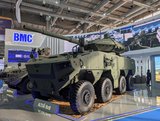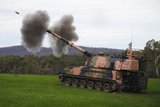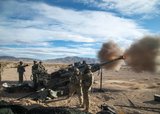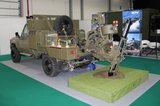Wanted Down Under: local businesses for Land 400
The Australian Department of Defence announced an opportunity roadmap for local companies to work on the Land 400 Phase 2 Combat Reconnaissance Vehicle (CRV) programme on 20 October.
The Australian Industry Opportunity Roadmap - developed by the programme's two shortlisted tenders, BAE Systems Australia and Rheinmetall - aims to promote Australian local industry involvement in the programme, particularly in assembly, systems design, testing and evaluation, integration and capability support capacities.
The roadmap was developed following the recommendations arising from the Deloitte Review of Australian Industry Opportunities for Land 400. Both BAE Systems Australia and Rheinmetall will participate in a series of industry showcase workshops before the end of 2016, once responses to the roadmap have been received.
Minister for Defence Industry, Christopher Pyne, said: 'Australian industry involvement is at the centre of the government’s plans for the project. Projects like Land 400 give us the opportunity to modernise our defence capability while keeping jobs in Australia and boosting domestic manufacturing.'
Land 400 Phase 2 involves the purchase of 225 Combat Reconnaissance Vehicles for the Australian Army, replacing the Australian Light Armoured Vehicle.
Related Equipment in Defence Insight
More from Land Warfare
-
![US Army plans Q2 prototype proposal request for its Mobile Tactical Cannon programme]()
US Army plans Q2 prototype proposal request for its Mobile Tactical Cannon programme
The US Army is seeking a mature 155mm, wheeled, self-propelled capability to replace the towed M777 howitzer in the Stryker, Mobile and Infantry Brigade Combat Teams as it targets a potential 498-unit acquisition goal.
-
![British Army’s Project Stokes 120mm mortar bids due in March 2026]()
British Army’s Project Stokes 120mm mortar bids due in March 2026
Project Stokes could see a new 120mm mortar capability enter British service, with domestic production and international partnerships central to competing bids.
-
![MKJ Warrior Series — The Nett Warrior Qualified Connector for Today’s Soldier Systems]()
MKJ Warrior Series — The Nett Warrior Qualified Connector for Today’s Soldier Systems
ITT Cannon’s MKJ Warrior connectors are designed for the harshest environments, delivering mission critical comms, navigation and USB data/power.






















